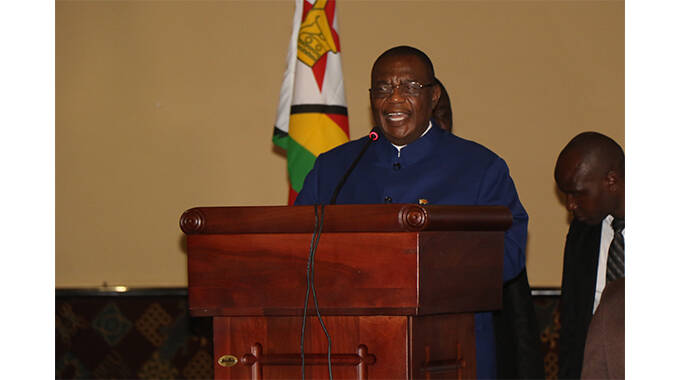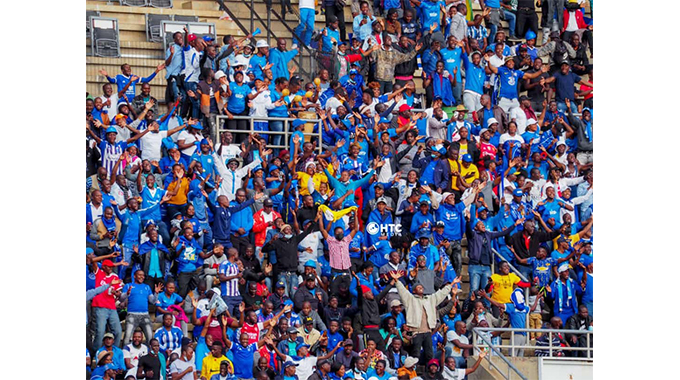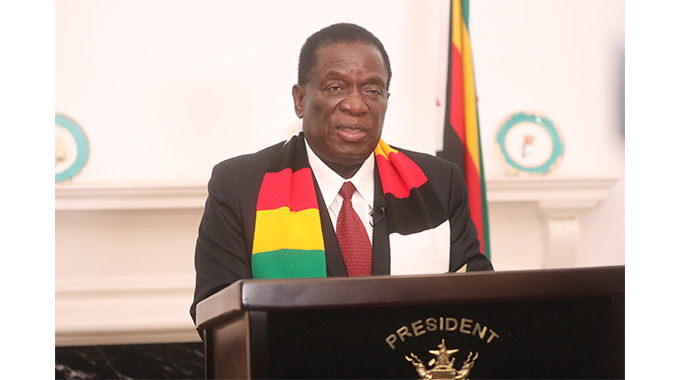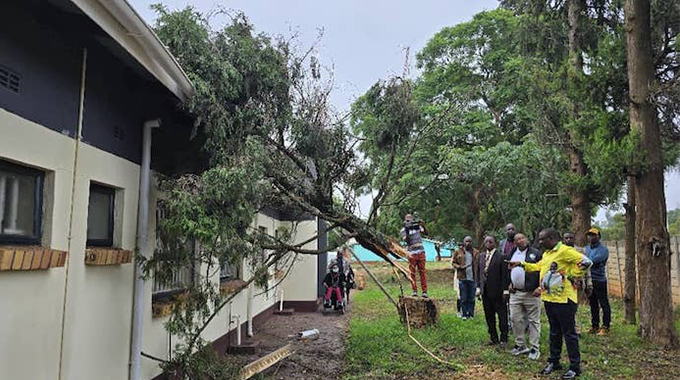Prosper the shortest stands tall on the dance floor

Thandeka Moyo-Ndlovu, Senior Reporter
DYNAMITE comes in small packages! This could ring true for the diminutive 8-year-old Prosper Nyoni who is the reigning best traditional dancer nationally.
While his height sees him being dwarfed by his peers, his nimble feet outshine them all. His skills got him the dancer of the tournament award at the Jikinya traditional dance festival which was graced by Vice President Constantino Chiwenga.
So charmed was the Vice President that he gave the tiny boy US$300 and also doubled the first prize for Prosper’s school which saw Lwendulu Primary School walking away with a total of US$4 000.

Prosper Nyoni best traditional dancer
The Jikinya Festival is a partnership between the National Arts Council of Zimbabwe (NACZ) and the National Association of Primary Heads (NAPH), held under the theme: “Building Zimbabwe Through Dance, Our Heritage Is Our Identity.
The fiesta began in 2001 and has nurtured talent in traditional music and dance by showcasing a variety of local dances by primary school pupils.
The competition is a permanent fixture on the school calendar involving over 5 000 primary schools in the country which compete at district, provincial and national levels every year.
At the heart of the Hwange district lies Lwendulu Primary School which recently broke a record and won the national competition dispelling myths that Matabeleland North province is home to under-performing school kids.
After months of practicing Amabhiza, a Kalanga dance originating from Matabeleland, the team of 13 learners came out tops in the district, provincial and eventually the national competition.
A Chronicle crew was recently privileged to watch Prosper and his team perform during a public event where he continued to steal the hearts of many.
As the other team members started singing the popular Jelimana song, Prosper slowly moved in rhythm to the drum immediately taking the spotlight since he was the shortest of the team.
His moves caught the crowd’s attention and within seconds he got a standing ovation when the director of the ceremony announced that the boy performing before them was truly Zimbabwe’s reigning best-dancing traditional dancer.
After about four good minutes of walking, trotting, cantering, and galloping like real horses the four boys ended their dance.
The drum stopped signalling the end of the dance, with loud ululation and clapping from the ecstatic crowd.
The guest this time – Minister of State for Provincial Affairs and Devolution Cde Richard Moyo stood up and lifted Prosper expressing gratitude to the school for raising the provincial flag high.

He pledged to treat the winning team with a sponsored trip to the Victoria Falls rainforest adding that Prosper’s school fees for 2023 will be fully paid from his pocket.
The face behind Lwendulu’s success, Michael Kanyika, who spent the whole of 2022 coaching the learners, said he was happy that his province had gotten the first prize.
“I am happy that we did this, I mean their teacher insisted that I train them last year not knowing that we will win. Last year we did districts, and provincial competitions for the Jikinya Dance festival and the theme dance was Amabhiza. After so many years we were struggling as Hwange as Matabeleland North and we finally made it happen,” said Kanyika.
“I am also happy that Prosper made us proud. I mean he even impressed the Vice President who graced the national competition last year in November. The organisers gave him money and the Vice President gave him $300, the best. We have already started preparing for Mande a dance from Mashonaland.”

Minister of State and Provincial Affairs and Devolution for Matabeleland North Cde Richard Moyo
The winning team was composed of Stanslas, Carline, Portia, Chriselda, Courage, Prosper, Tinashe, Victor and Shepherd.
“Other teammates, especially girls, sing, ululate and clap while the boys dance with whistles in their mouths. All the outfits are made from animal skin and animal hair and the most important is the headgear as the dancers should imitate horses. We should continue upholding our culture and it’s good to see our children appreciating our tradition. We should be diligent in teaching them customs so that they are well-rounded citizens,” added Kanyika.
Originally dubbed Hosho, before isiNdebele speaking people referred to it as Amabhiza, the dance made a return as the common dance for the 2022 edition of Jikinya, having been the inaugural common dance in 2011when the concept was introduced.
The well-known Kalanga traditional dancer, Ntongwa Dube, performed that dance until his death, at well more than 70 years at his home in Ramaquebana siding in Botswana.

Vice-PresidentConstantino Chiwenga
He had led his wonderful troupe at the historic first Botswana independence anniversary in 1966. His magnificent performance was televised all over the world, from America to Vietnam.
People who live in regions neighbouring Botswana such as Dombodema Resettlement Area can certainly establish cultural exchange programmes with Ntongwa Dube’s descendants.
Amabhiza was traditionally performed at rain-making ceremonies to appease the spirits of the rainmakers for a good harvest.
The dancers follow the steps of a horse accompanied by three drums, clapping and a whistle.
Key to this dance is the outfit and each dancer called ibhiza should be clad in amahlwayi, ibhetshu and the headgear called indlukula. Since the dance is dominated by male dancers, they must carry a tshoba and a hoso on the other hand and make horse-like moves while blowing a whistle following the rhythm of three drums.
The third small drum called the mando is a special drum that produces a unique sound, which is the signature rhythm of the performance.












Comments